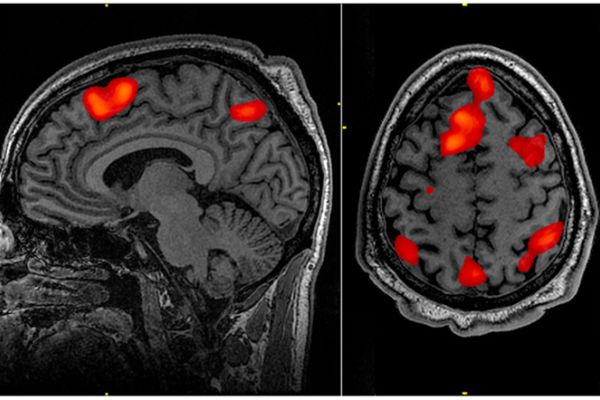
Memory is a continually unfolding process. Initial details of an experience take shape in memory; the brain’s representation of that information then changes over time. With subsequent reactivations, the memory grows stronger or fainter and takes on different characteristics. Memories reflect real-world experience, but with varying levels of fidelity to that original experience.
The degree to which the memories we form are accurate or easily recalled depends on a variety of factors, from the psychological conditions in which information is first translated into memory to the manner in which we seek—or are unwittingly prompted—to conjure details from the past.
The creation of a memory requires a conversion of a select amount of the information one perceives into more permanent form. A subset of that memory will be secured in long-term storage, accessible for future use. Many factors during and after the creation of a memory influence what (and how much) gets preserved.
Why do we create memories? Created with Sketch.Memory serves many purposes, from allowing us to revisit and learn from past experiences to storing knowledge about the world and how things work. More broadly, a major function of memory in humans and other animals is to help ensure that our behavior fits the present situation and that we can adjust it based on experience.
What is encoding? Created with Sketch.Encoding is the first stage of memory. It is the process by which the details of a person’s experience are converted into a form that can be stored in the brain. People are more likely to encode details of what they are paying attention to and details that are personally significant.
What is retention and consolidation? Created with Sketch.Retention, or storage, is the stage in which information is preserved in memory following its initial encoding. These stored memories are incomplete: Some of the information that is encoded during an experience fades during retention, sometimes quickly, while other details remain. A related term, memory consolidation, refers to the neurobiological process of long-term memory formation.
How does sleep affect your memory? Created with Sketch.Sleep facilitates the retention of memories, though why exactly this is the case is not fully understood. Research has found that people tend to show better memory performance if they sleep after a phase of studying rather than staying awake. Researchers have proposed that sleep supports memory consolidation in the brain, though other explanations include that sleep aids retention by eliminating interference from memories that would be formed while awake.
How Memories Are Stored in the BrainWhile memories are usually described in terms of mental concepts, such as single packages of personal experience or specific facts, they are ultimately reducible to the workings and characteristics of the ever-firing cells of the brain. Scientists have narrowed down regions of the brain that are key to memory and developed an increasingly detailed understanding of the material form of these mental phenomena.
What parts of the brain are important for memory? Created with Sketch.The hippocampus and other parts of the medial temporal lobe are critical for many forms of memory, though various other parts of the brain play roles as well. These include areas of the more recently evolved cerebral cortex, the outermost layer of the brain, as well as deep-seated structures such as the basal ganglia. The amygdala is important for memory as well, including the integration of emotional responses into memory. The extent to which different brain regions are involved in memory depends on the type of memory.
How is memory stored in the brain? Created with Sketch.Memory involves changes to the brain’s neural networks. Neurons in the brain are connected by synapses, which are bound together by chemical messengers (neurotransmitters) to form larger networks. Memory storage is thought to involve changes in the strength of these connections in the areas of the brain that have been linked to memory.
What is an engram? Created with Sketch.A memory engram, or memory trace, is a term for the set of changes in the brain on which a memory is based. These are thought to include changes at the level of the synapses that connect brain cells. Research suggests an engram is not located in one specific location in the brain, but in multiple, interconnected locations. Engram cells are groups of cells that support a memory: They are activated and altered during learning and reactivated during remembering.
How We Recall MemoriesAfter memories are stored in the brain, they must be retrieved in order to be useful. While we may or may not be consciously aware that information is being summoned from storage at any given moment, this stage of memory is constantly unfolding—and the very act of remembering changes how memories are subsequently filed away.
What is retrieval? Created with Sketch.Retrieval is the stage of memory in which the information saved in memory is recalled, whether consciously or unconsciously. It follows the stages of encoding and storage. Retrieval includes both intentional remembering, as when one thinks back to a previous experience or tries to put a name to a face, and more passive recall, as when the meanings of well-known words or the notes of a song come effortlessly to mind.
What is a retrieval cue? Created with Sketch.A retrieval cue is a stimulus that initiates remembering. Retrieval cues can be external, such as an image, text, a scent, or some other stimulus that relates to the memory. They can also be internal, such as a thought or sensation that is relevant to the memory. Cues can be encountered inadvertently or deliberately sought in the process of deliberately trying to remember something.
Why are some things easier to remember? Created with Sketch.Multiple factors influence why we remember what we do. Emotionally charged memories tend to be relatively easy to recall. So is information that has been retrieved from memory many times, through studying, carrying out a routine, or some other form of repetition. And the “encoding specificity principle” holds that one is more likely to recall a memory when there is greater similarity between a retrieval cue (such as an image or sound in the present) and the conditions in which the memory was initially formed.
What is memory reconsolidation? Created with Sketch.After a memory is retrieved, it is thought to undergo a process called reconsolidation, during which its representation in the brain can change based on input at the time of remembering. This capacity for memories to be reformed after retrieval has been explored as a potential element of psychotherapeutic interventions (for dampening the intensity of threatening memories, for example).
What are flashbulb memories? Created with Sketch.“Flashbulb memories” are what psychologists have called memories of one’s personal experience of significant and emotionally intense events, such as the 9/11 attacks and other highly distinctive occurrences. These memories may seem especially vivid and reliable even if the accuracy of the remembered details diminishes over time.
What is priming? Created with Sketch.Priming is what happens when being exposed to one stimulus (such as a word) affects how a person responds to another, related one. For example, if someone is shown a list of words that includes nurse, he may be more likely to subsequently fill out the word stem nu____ with that word. Measures of priming can be used to demonstrate implicit memory, or memory that does not involve conscious recollection.
False and Distorted MemoriesMemories have to be reconstructed in order to be used, and the piecing-together of details leaves plenty of room for inaccuracies—and even outright falsehoods—to contaminate the record. These errors reflect a memory system that is built to craft a useful account of past experience, not a perfect one. (For more, see False Memories.)
How do memories become distorted? Created with Sketch.Memories may be rendered less accurate based on conditions when they are first formed, such as how much attention is paid during the experience. And the malleability of memories over time means internal and external factors can introduce errors. These may include a person’s knowledge and expectations about the world (used to fill in the blanks of a memory) and misleading suggestions by other people about what occurred.
How are false memories created? Created with Sketch.False memories can be as simple as concluding that you were shown a word that you actually weren’t, but it may also include believing you experienced a dramatic event that you didn’t. People may produce such false recollections by unwittingly drawing on the details of actual, related experiences, or in some cases, as a response to another person’s detailed suggestions (perhaps involving some true details) about an imaginary event that is purported to be real.
How easy is it to implant a false memory? Created with Sketch.It probably depends on the kind of memory. Minor manipulations like convincing people they saw a word that they did not see seem to be fairly easy to do. Getting people to conclude they had an experience (like spilling punch at a wedding) that was in fact made up seems to require more work—including, in one study, a couple of conversations and encouragement to think more about the “memory”—and may fully succeed only for a minority of people. Still, researchers who have investigated the implanting of false memories argue that in some cases, enough outside suggestion could result in the creation of false or distorted memories that have serious legal consequences.
What causes déjà vu? Created with Sketch.Déjà vu, a French phrase that translates to “already seen,” is the sense of having seen or experienced something before, even though one is in fact encountering it for the first time. While the cause is not fully understood, one explanation for why déjà vu happens is that there is some resemblance between a current experience and a previous one, but the previous experience is not readily identified in the moment. Others have suggested that déjà vu may result from new information somehow being passed straight to long-term memory, or from the spontaneous activation of a part of the brain called the rhinal cortex, involved in the sense of familiarity.
Essential Reads
Who would have thought we would miss seeing a gorilla in plain view? But it happens! What can this teach us about how cell phones interfere with learning. Read on to find out!

How your emotions, imagination, social circle, and media influence and alter your memories—and strategies to preserve them.


Neurobiology shows us that there is joy in effort and that hard cognitive effort really does make stronger memories.
Recent Posts
How a conversation about R.E.M.'s "Everybody Hurts" led to musings about the unpredictability of grief.
How a conversation about R.E.M.'s "Everybody Hurts" led to musings about the unpredictability of grief.

Our memory can be a big cause of error that influences who and what we believe. Learn why it's risky to rely on this subtle source of misinformation.
Our memory can be a big cause of error that influences who and what we believe. Learn why it's risky to rely on this subtle source of misinformation.
Complications of hoarding disorder are explored, including cognitive dysfunction, emotional dysregulation, social isolation, physical health risks, and poor insight.
Complications of hoarding disorder are explored, including cognitive dysfunction, emotional dysregulation, social isolation, physical health risks, and poor insight.

Replaying past events does not bring us any closer to letting go of painful memories. Learn how to assemble the puzzle of your past and give your mind peace through writing.
Replaying past events does not bring us any closer to letting go of painful memories. Learn how to assemble the puzzle of your past and give your mind peace through writing.

Does your loved one sometimes do the opposite of what you want them to do? It may be because of the words you used.
Does your loved one sometimes do the opposite of what you want them to do? It may be because of the words you used.

To save your brain from neurobiological boredom, stand up and be squatted every now and then, and start to think of sitting as part of your interruption of standing.
To save your brain from neurobiological boredom, stand up and be squatted every now and then, and start to think of sitting as part of your interruption of standing.

Are studies of music therapy’s impact reliable?
Are studies of music therapy’s impact reliable?

Whether or not you remember, you dream several times a night. Your dreams are crucial in enhancing memory, integrating new skills, regulating emotions and healing trauma.
Whether or not you remember, you dream several times a night. Your dreams are crucial in enhancing memory, integrating new skills, regulating emotions and healing trauma.

We encounter failure in our daily lives. How we interpret the meaning of failure and, in turn, how we remember and react to failure, can be influenced by our cultural upbringing.
We encounter failure in our daily lives. How we interpret the meaning of failure and, in turn, how we remember and react to failure, can be influenced by our cultural upbringing.

Are the dreams we have of lost loved ones meaningful?
Are the dreams we have of lost loved ones meaningful?